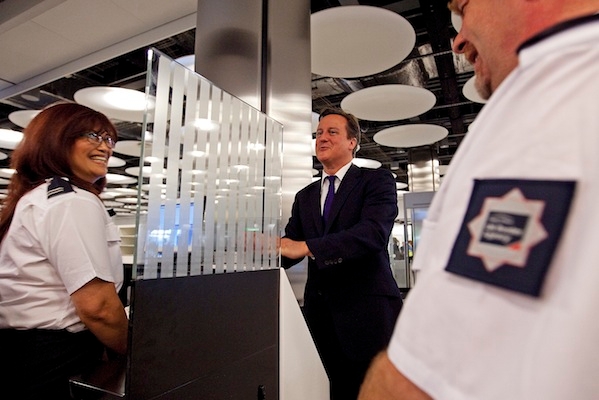The fall of one third in the net immigration statistics announced today is the most significant development since that number rose by 50 per cent in 2004 (unremarked, incidentally, by the BBC at the time). On this occasion the IPPR (and the Migration Observatory) seemed determined to play down the government’s achievement. Certainly there is still a distance to go from today’s 160,000 to the target of tens of thousands but there are another two years in which to reach it.
Sarah Mulley argues that the government are laying a trap for themselves because a reduction in student arrivals will lead to a reduction in departures in a few years time. That would only be true if the fall was in genuine students. In fact, the fall was very largely among New Commonwealth students. There is extensive evidence from the National Audit Office and from a Home office pilot study which indicates that there has been serious abuse of the student route in the Indian sub-continent. So, if those who have been cut out were bogus, as seems likely, there would be no reduction in out-flows as those concerned would have had no intention of going home.
Mulley goes on to suggest that even more drastic cuts in student numbers would be needed to make any further progress towards the government target. This too is wrong. It ignores the scope for encouraging non-EU migrants to leave when their visas expire. The numbers are stark. From 2003 the non–EU inflow has been steady at about 300,000 a year yet departures remained largely unchanged at around 100,000. This net inflow of 200,000 a year from outside the European Union suggests that these migrants have a high propensity to stay on, legally or otherwise. It follows that a reduction in their inflow will have a larger effect on net migration than the figures for legal extensions suggest.
As for today’s outcome, the government’s policy has not only worked, it has worked as was intended with minimum collateral damage. The fall in student numbers was among the colleges where the abuse is believed to have occurred, not among the universities where non EU student visa numbers last year were up 3 per cent. Work permits are up by a similar amount and business visitors increased by 100,000 to 1.7 million.
It would be hard to expect a better report card on a complex area of policy. Maybe that is what disturbs the critics.
Sir Andrew Green is chairman of Migration Watch UK.






Comments